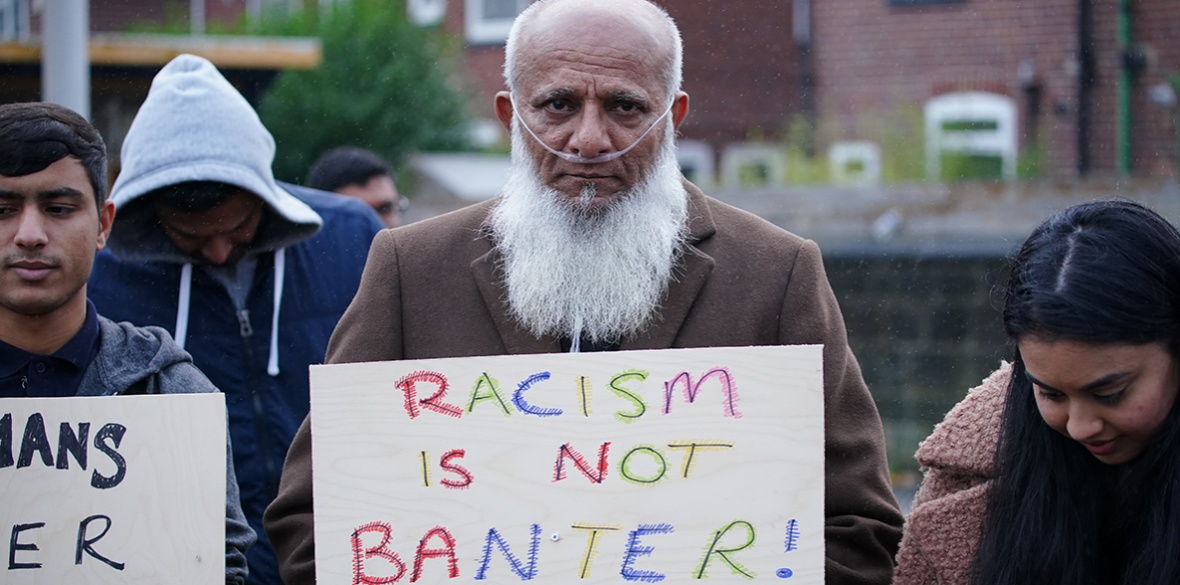This is the last article you can read this month
You can read more article this month
You can read more articles this month
Sorry your limit is up for this month
Reset on:
Please help support the Morning Star by subscribing here
PUBLIC money should be withheld from cricket unless it can “clean up its act” on racism, a parliamentary committee has said.
Azeem Rafiq provided harrowing testimony to the Digital, Culture, Media and Sport (DCMS) select committee in November about the racist abuse he suffered across two spells at Yorkshire, starting in 2008 and ending in 2018.
The committee’s report, published today, found there was “deep-seated” racism within the sport and pointed to the language used in correspondence with the committee and attempts to “discredit” Rafiq in the media as evidence that a “long and difficult road” lay ahead.
The committee called on the England and Wales Cricket Board to develop a set of key indicators and then provide updates to the committee every quarter on its progress, or face a cut to government funding. The ECB and Yorkshire will be called to give evidence on their progress early this year, the committee said.
“We are watching closely and fully intend to ensure that cricket cleans up its act,” the report read.
“We recommend that the government ensures that any future public funds for cricket are dependent on continuous, demonstrable progress in getting rid of racism in both the dressing rooms and on the stands.”
Sports Minister Nigel Huddleston told the committee on November 18 that an independent regulator for cricket to oversee the flow of public money into the sport was the “nuclear option” if the ECB failed to get its house in order.
The ECB published a game-wide, 12-point plan to tackle discrimination on November 26, with its under-fire chief executive Tom Harrison describing the racism allegations from Rafiq and players from other counties as an “earthquake” that had hit the sport.
The plan included a review of dressing-room culture, diversity training for all those involved in the sport, a governance review, a drive to remove barriers to playing top-level cricket, localised equality, diversity and inclusion for clubs, counties and governing bodies and examining how stadia can be made more welcoming to people from diverse backgrounds.
Rafiq was praised by the committee for the evidence he gave about his experience at Yorkshire, “and his conviction that this was not simply a personal issue but an endemic problem across the whole of cricket.”
The committee set up the inquiry after Yorkshire announced last October there would be no disciplinary action taken against any individual at the club despite an investigation commissioned by the club concluding there was “no question” Rafiq had experienced bullying and racial harassment during his stints at the county.
County chair Roger Hutton and chief executive Mark Arthur resigned in November as the pressure and criticism mounted, while director of cricket Martyn Moxon and first-team coach Andrew Gale were dismissed in early December.
New chair Lord Patel was appointed in November, and one of his first acts was to announce that a separate employment tribunal claim lodged by Rafiq against the club had been settled.
He has also orchestrated major changes among the club’s leadership, with Darren Gough and Ryan Sidebottom appointed as interim director of cricket and coach respectively, and set up a whistleblowing hotline.
Patel welcomed Rafiq’s call on Wednesday for the ECB to restore Yorkshire’s right to stage international matches at Headingley, which was stripped from them over the former leadership’s handling of Rafiq’s allegations.
Yorkshire could face further sanctions arising from the ECB’s ongoing investigation into how it handled Rafiq’s complaints.











